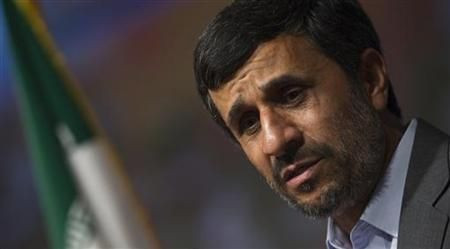Libya Over, Is Iran Next American Target?

Libya's long time leader, Col. Moammar Gadhafi is dead; al-Qaeda's Osama bin Laden has been taken out and Operation Iraqi Freedom has almost reached its conclusion after the death of Saddam Hussain. This means that the world's superpower, the United States, is free to think about the welfare of other countries.
With Israeli President, Shimon Peres, trying to show U.N. nations the threat Israel faces from Iran and urging them to build pressure on Iran to disclose its nuclear programs, Iran seems to be inching towards becoming the next target of the U.S. and UK coalition forces.
Peres also said that the international community is closer to pursuing a military option than a diplomatic solution to Iran's nuclear program. He called on world leaders to fulfill their promises to stop Iran.
Just a day before Peres' comment, U.S. President Barack Obama said, One (issue) in particular that I want to mention is the continuing threat posed by Iran's nuclear program.
The IAEA is scheduled to release a report on Iran's nuclear program next week and (French) President (Nicolas) Sarkozy and I agree on the need to maintain the unprecedented pressure on Iran to meet its obligations, added Obama.
The UK, another strong voice in the U.N., is also ready for possible military action against Iran, according to a Foreign Office spokesman.
We want a negotiated solution, but all options should be kept on the table, said the spokesperson, who was responding to a report in the Guardian, which said that Britain believes the U.S. may launch missiles at some of Iran's important nuclear facilities; with, of course, the help of the UK.
The U.S. has been accusing Iran of developing nuclear warheads at a plant meant for civilian use. In addition, the U.S. also accused Iran of plotting to assassinate the Saudi ambassador to Washington, which Iran denied immediately. Iran have also denied the nuclear weapons accusations, saying that its nuclear program is completely dedicated to power generation.
The U.S. attack on Iran's neighbor (Iraq) was launched with the same allegations. However, the U.N.'s nuclear watchdog - the International Atomic Energy Agency (IAEA) - turned down claims made by the Bush administration.
According to a New York Times report, Iran has admitted in the past that it works on explosives at Parchin and seven years ago it briefly allowed IAEA inspectors into the site to look around. However, it insisted the work was entirely on conventional weapons and the inspectors found no evidence to contradict those statements.
The IAEA is due to release its quarterly report on Iran's nuclear program this Wednesday.
© Copyright IBTimes 2024. All rights reserved.




















